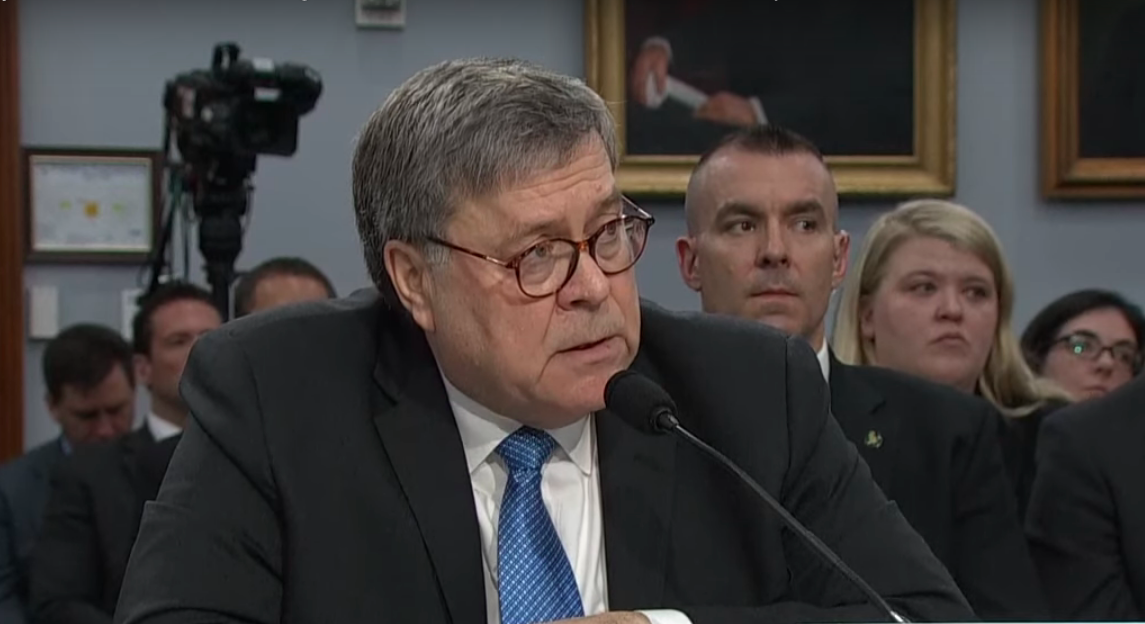I don’t doubt that Attorney General William Barr was being honest when he told Sadie Gurman of the Wall Street Journal that “his long-held belief in executive power is more about protecting the presidency than the current officeholder.” Based on a review of his history, I wrote that he is more of an ideologue on the issue of executive power than a Trump enabler.
Most of us would have issues with a president who had the power to defy the explicit will of congress as the Reagan administration did with their Iran-Contra deal. We would also take issue with the idea that a president has the executive authority to justify the use of torture or invade a country that hasn’t attacked us without consulting congress. But those are all positions that William Barr defended. As Gurman notes, the current attorney general thinks that the country went overboard in restricting presidential power after Nixon and Watergate.
In defending Donald Trump, Barr has now asserted that a president can’t obstruct justice because they have the authority to shut down any investigation they think is unfair. It is clear that Barr is behind the arguments made by Trump’s lawyers that congress isn’t authorized to investigate the president. Given the fact that the attorney general also argued against reauthorizing the independent counsel statute after Clinton’s impeachment, it appears as though the attorney general doesn’t think that anyone should ever investigate a president for wrongdoing. We might call that an extremist position on executive power.
That extremism is now on display as Barr is in the midst of making these arguments about executive power in defense of a president who is steeped in criminality and the abuse of power. While Barr has employed those arguments in the past on behalf of some pretty shady activities of previous Republican presidents, the current occupant of the White House is the consummate test for his position.
Barr has decided to argue on behalf of executive power for a president who—at minimum—welcomed Russian interference in his election and obstructed justice. There is also credible evidence that he:
- Is behaving as an asset of a foreign adversary,
- Violated the emoluments clause of the constitution,
- Committed fraud in tax assessments,
- Engaged in money laundering, and
- Ran a corrupt charitable foundation.
Those are just the possible crimes. We can’t forget that they are coupled with a president who is a pathological liar and demonstrably unfit for office.
That is the person that William Barr came out of retirement to defend in his quest to further the cause of executive power. Unlike many in Trump’s cabinet, the attorney general is not an ignorant man. So we have to conclude one of two things: (1) his view of executive power has blinded him to Trump’s criminality, or (2) it is so extreme that he is willing to use it in defense of the most corrupt president in this country’s history.
Either way, this is the test Barr has chosen in his quest to defend executive power. If all goes as it should, it might finally be the one that ends the whole notion.



